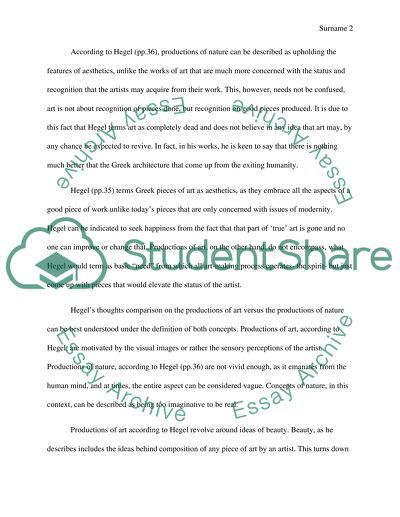Introduction to Hegel's Philosophy on Art Essay. Retrieved from https://studentshare.org/philosophy/1444083-introduction-to-hegel-s-philosophy-on-art
Introduction to Hegel'S Philosophy on Art Essay. https://studentshare.org/philosophy/1444083-introduction-to-hegel-s-philosophy-on-art.


